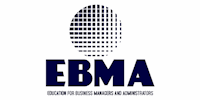- Tutor is available to students
Advanced Diploma in Forensic Accounting
EBMA Qualification 100% online | Learn online anywhere, anytime | Tutor support throughout the Course
Oxford Home Study College
Summary
Overview
Advanced Diploma in Forensic Accounting
Embark on an advanced journey into the realm of forensic accounting with the Advanced Diploma in Forensic Accounting. This comprehensive programme is meticulously crafted to equip learners with the highest level of expertise in investigating financial fraud, misconduct, and economic crimes. Delve into intricate concepts and practices essential for navigating complex financial investigations and protecting organisations from fraudulent activities.
Learning Objectives:
Upon successful completion of the programme, learners will be able to:
- Understand the fundamentals of Forensic and Investigative Accounting and their application in financial crime investigations.
- Analyse Economic Trends and Crime to identify patterns and indicators of financial fraud and misconduct.
- Recognise the characteristics and behaviours of a Typical Fraudster to detect potential fraud schemes.
- Implement Effective Techniques for Fraud Detection using data analysis, forensic technology, and investigative methodologies.
- Execute Procedures for Investigation to gather admissible evidence and build a case against fraud perpetrators.
- Master the Basics of Collecting Evidence, including the preservation, documentation, and presentation of financial evidence.
- Gain and Assess Non-Financial Evidence to support financial investigations and strengthen legal proceedings.
- Utilise Forensic Interviewing Techniques and Processes to extract valuable information from witnesses and suspects.
- Conduct a Fraud Risk Assessment Successfully to identify vulnerabilities and implement proactive fraud prevention measures.
- Develop Strategies for Fraud Prevention to mitigate risks and safeguard organisational assets.
- Understand the intricacies of Cyber Crime and its Prevention to combat digital fraud and cyber threats effectively.
- Money Laundering and Anti-Money Laundering (AML)
- Corporate Governance and Internal Controls
Qualification
Description
The Advanced Diploma in Forensic Accounting provides an in-depth exploration of forensic and investigative accounting, economic trends and crime, fraud detection techniques, evidence collection, and fraud prevention strategies. With a blend of mandatory and optional modules, learners gain comprehensive knowledge and practical skills crucial for combating financial crimes effectively.
Course Structure:
Mandatory Modules (10 Credits Each):
- Forensic and Investigative Accounting - An Overview
- Economic Trends and Crime
- Spotting a Typical Fraudster
- Effective Techniques for Fraud Detection
- Procedures for Investigation
- The Basics of Collecting Evidence
- Gaining & Assessing Non-Financial Evidence
- Forensic Interviewing Techniques and Processes
- Conducting a Fraud Risk Assessment Successfully
- Strategies for Fraud Prevention
- Cyber Crime and its Prevention
Optional Modules (10 Credits Each):
- Money Laundering and Anti-Money Laundering (AML)
- Corporate Governance and Internal Controls
Qualification:
The successful completion of all mandatory and optional modules accumulates a total of 130 credits, leading to the award of the Advanced Diploma in Forensic Accounting.
Additional Note - Assessment Fees
The assessment fee for the entire course is £950, or in 12 monthly instalments.
(Discounted Fee £850)
(12 monthly Instalments)
Admission Fee: £450
12 monthly instalments of £41.66/month.
Who is this course for?
This course targets individuals aiming to reach the pinnacle of their career in accounting and finance, particularly beneficial for those in managerial roles or aspiring to such positions. It provides advanced knowledge and skills required for strategic financial decision-making.
Requirements
Prospective learners should meet the following criteria to enrol in the Advanced Diploma in Accounting and Finance Level 7:
- A minimum of a Level 6 qualification in a relevant field from a recognized body, OR
- Any qualification equivalent to the Level 6 requirement.
Relevant work experience in accounting or finance may also be considered for admission.
Career path
Upon completion of the Advanced Diploma in Accounting and Finance Level 7, graduates can pursue executive and leadership roles in accounting, finance, and strategic management. This qualification serves as a prestigious credential for those seeking to make significant contributions to the financial success and sustainability of organizations.
Questions and answers
Currently there are no Q&As for this course. Be the first to ask a question.
Reviews
Currently there are no reviews for this course. Be the first to leave a review.
Legal information
This course is advertised on Reed.co.uk by the Course Provider, whose terms and conditions apply. Purchases are made directly from the Course Provider, and as such, content and materials are supplied by the Course Provider directly. Reed is acting as agent and not reseller in relation to this course. Reed's only responsibility is to facilitate your payment for the course. It is your responsibility to review and agree to the Course Provider's terms and conditions and satisfy yourself as to the suitability of the course you intend to purchase. Reed will not have any responsibility for the content of the course and/or associated materials.
FAQs
Interest free credit agreements provided by Zopa Bank Limited trading as DivideBuy are not regulated by the Financial Conduct Authority and do not fall under the jurisdiction of the Financial Ombudsman Service. Zopa Bank Limited trading as DivideBuy is authorised by the Prudential Regulation Authority and regulated by the Financial Conduct Authority and the Prudential Regulation Authority, and entered on the Financial Services Register (800542). Zopa Bank Limited (10627575) is incorporated in England & Wales and has its registered office at: 1st Floor, Cottons Centre, Tooley Street, London, SE1 2QG. VAT Number 281765280. DivideBuy's trading address is First Floor, Brunswick Court, Brunswick Street, Newcastle-under-Lyme, ST5 1HH. © Zopa Bank Limited 2025. All rights reserved.


